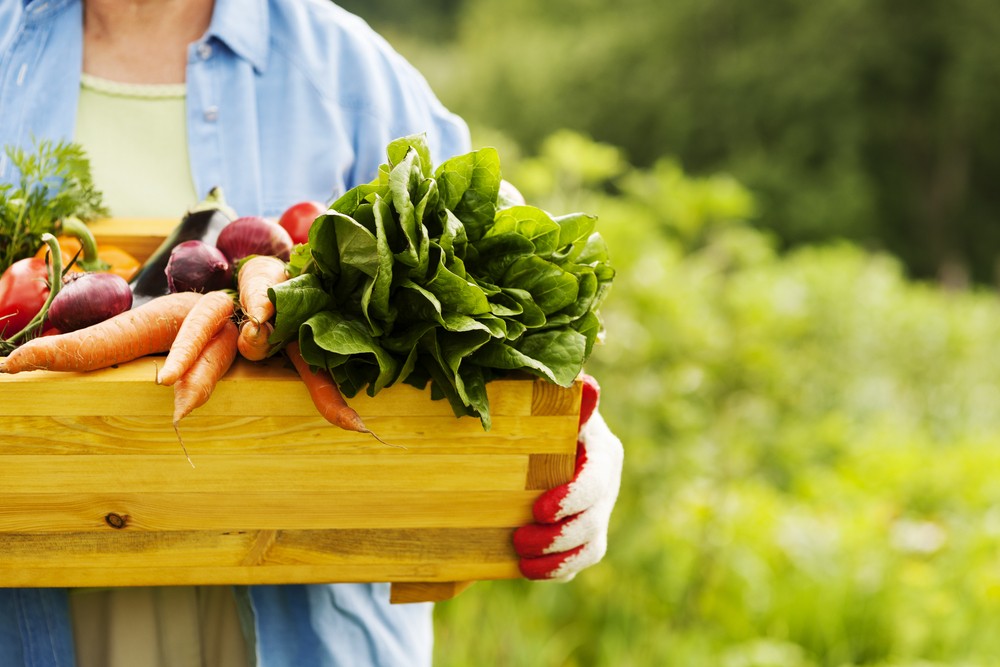Popular Reads
Top Results
Can't find what you're looking for?
View all search resultsPopular Reads
Top Results
Can't find what you're looking for?
View all search resultsFacts and myths about organic food
Change text size
Gift Premium Articles
to Anyone
D
o you find yourself in dilemma when buying organic food at the grocery store? Although organic food costs more than non-organic products, demand continues to escalate.
No doubt, seeking a healthy lifestyle has become a trend today. People have started to eat healthy food including fruit, vegetables, grains and other healthy foods. However, there are a few things you need to know about organic food.
What is organic food?
Organic food refers to vegetables, fruit, grains, dairy and meat products that are grown and processed using non-conventional methods in order to boost soil and water conservation, ecological balance and reduce pollution. Using crop rotation, natural fertilizers and mulching are examples of how organic farmers grow and process their products, achieving environmentally sustainable goals.
You can check the label of certification, both national and international, from an organic certification body on the packaging of food sold at grocery stores to find out whether the product is truly organic or not. In Indonesia, the agency authorized to certify organic products is the Organic Food Certification Institute (LSPO). Currently in the archipelago, only 40 percent or 9,000 hectares of 22,000 hectares of organic land has been certified both nationally and internationally, and only 20 percent is certified nationally.
The US Department of Agriculture (USDA) provides the requirements for certification of organic products, i.e. when it meets the following criteria:
- 100 percent organic product. No other ingredients added or made completely organically.
- Organic product. The products must contain at least 95 percent organic ingredients.
- Made with organic ingredients. Products that contain 70 percent organic ingredients. However, these products do not get the USDA seal of certification on the packaging but may list specific organic ingredients.
- Contains organic ingredients. Products that contain less than 70 percent organic ingredients, do not display the USDA seal but may list specific organic ingredients on the package’s information panel.
(Read also: Organic product consumption grows among urban people)
Six general perceptions about organic food
Despite the increasing popularity of organic food along with the increase of public awareness of health and environmental protection, not all perceptions and assumptions about organic food are correct. So what are the facts and what is actually wrong?
Organic food contains fewer pesticides: Correct. Pesticides are chemicals used to kill pests on plants. These chemicals are very often used in conventional farming methods, where the pesticide is still attached to the foods that we eat.
Organic food does not contain artificial ingredients: Correct. One rule that is most emphasized in organic products is a ban on artificial ingredients including preservatives, artificial sweeteners, colorings and flavorings, and monosodium glutamate.
Organic food supports go-green: Correct. Methods of planting and treatment of organic products are more environmentally friendly such as reducing the pollution of water, air and soil; reducing soil erosion, improving soil fertility and using less energy. Reducing the use of pesticides also affects animals (especially birds and small animals) and people who live close to farms.
Organic food is more nutritious: Wrong. Until now, no study has actually been able to prove that organic food is richer than non-organic food in nutritional value. Currently, researchers believe that there is no significant difference or diversity in nutrient content between organic and non-organic products.
Organic food is always environmentally friendly. Wrong. Although the planting methods reduce pollution research from Dennis Avery of the Hudson Institute’s Center for Global Food Issues claims that growing organic products uses much more land than non-organic products to produce the same amount of food. It is necessary to cut down miles of forest to be converted into organic farming to balance the number of non-organic products.
Organic food does not need to be washed: Wrong. It is recommended to wash all organic products, whether you buy in grocery stores or farmers’ markets, before consuming them. Washing everything under running water helps remove dirt, bacteria and pesticide from the surface of fruit and vegetables.
So, before you go to the cashier and purchase organic products, read the food labels carefully. It is advisable to buy organic products that have a certification label because it is assured that the product is an organic product.
Alternatively, you might want to buy organic food at farmers’ markets and it is better to stock them when they are in season. If lucky, you will find the price cheaper and the food fresher. (kes)












